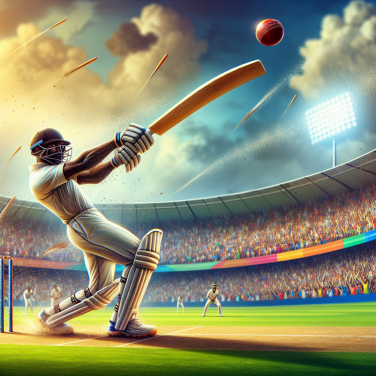What Your Soccer Skills Reveal: Are You a Forward or Goalkeeper?
Soccer is a sport that appreciates versatility but still recognizes the importance of specialization. Every role in the team is crucial, requiring unique skills and talents. Your abilities on the field can reveal a lot about which position suits you best. Are you a forward or a goalkeeper? Let's delve into the attributes that mark these two roles.
Primarily, the clear demarcations between a forward and a goalkeeper are largely dependent on their roles on the pitch. A forward, also known as a striker or attacker, is responsible for scoring goals. They are often the star performers who face immense pressure to create opportunities and score. On the other hand, goalkeepers occupy a unique and solitary role in the team of protecting the goal. They are the last line of defense and, on many occasions, the difference between winning and losing.
If you find yourself to be an excellent goal-scorer with exceptional finishing skills, you might be more suited as a forward. The ability to maintain composure in front of goal is a critical attribute. Strikers need to be opportunistic, possessing the ability to snatch chances when they come. Additionally, speed, agility, ball control, and good dribbling skills are valuable assets for forwards. Creativity and tactical awareness are also essential because forwards need to be able to create scoring opportunities for themselves and their team.
In contrast, if you are better at stopping shots, have a great leaping ability, or exceptional agility, you might be more of a goalkeeper. Being a shot-stopper requires excellent reflexes and astounding hand-eye coordination. The goalkeeper needs to be brave, ready to dive at the feet of onrushing attackers. Geometry and positional sense are crucial, as a goalkeeper needs to be able to read the game and anticipate an opponent's moves.
Communication skills are underrated but important in both roles. While goalkeepers need to organize the defense and alert players to impending danger, forwards need to link up with their teammates for well-coordinated attacks. Additionally, both forwards and goalkeepers must demonstrate leadership qualities, resilience, and the ability to handle pressure, as the game can often hinge on their performance.
Your physical abilities can also distinguish your playing position. If you have a tall, commanding presence, goalkeeping might come naturally to you. Height offers a distinct advantage when reaching for high shots or crosses. For a forward, however, a lower center of gravity might be beneficial in maintaining balance while dribbling past defenders at high speeds.
Read also:
Designing the Perfect Exercise Routine for Optimal Health Benefits
Identifying Your Soccer Play Style: Discovering the Athlete Within
Just as every professional athlete has their unique play style, so do you. Whether you’ve been playing soccer for years or have just picked up the sport, it’s possible to identify your own soccer play style based on your strengths and weaknesses. Let’s explore some common soccer play styles and figure out which one best suits you.
To begin, there are many factors to consider, but the key ones typically include how you handle and control the ball, your speed and agility, your physicality and your soccer IQ.
Few players aren’t known for their imposing physique or blistering speed, but have great technical ability. They’ve mastered the art of dribbling, controlling and passing the ball – all fundamental skills of soccer. If your play style emphasizes ball control and accuracy of passes over physical power or pace, you might be a ‘Technician’. Classic examples of Technicians include Barcelona legends Xavi Hernandez and Andre Iniesta.
Another common play style is the ‘Speedster’. This player relies on raw speed and agility to outmaneuver opponents. Their electric pace makes them a constant threat on the soccer pitch, especially when there is open space to exploit. If you’re always the fastest player on the pitch, using that pace to beat opponents, and have a knack for one-on-one situations, you might be a Speedster. The world’s most famous Speedster is arguably Paris Saint-Germain forward, Kylian Mbappé.
Do you often outmuscle opponents off the ball, dominate aerial duels and love a good physical challenge? Then you might well be an ‘Enforcer’. This kind of player relies on physical strength to command their area, whether that’s in defense or attack. Famous Enforcers include defensive stalwarts such as Liverpool’s Virgil van Dijk.
If you are the player who is often thinking two steps ahead of other players, finding smart passing lanes, or making well-read interceptions, it may well be that you have a high soccer IQ, and are a ‘Strategist’. This play style values intelligence and understanding of the game over physical attributes or flashy skills. Andrea Pirlo, former player for Italy and AC Milan, was a masterful Strategist.
An understanding of these various play styles allows players, coaches, and analysts to appreciate the diversity of roles within a soccer team. Each style has its specific strengths, limitations, and tactical implications.
Remember, these play styles are not rigid classifications. Many players combine elements from different styles.




